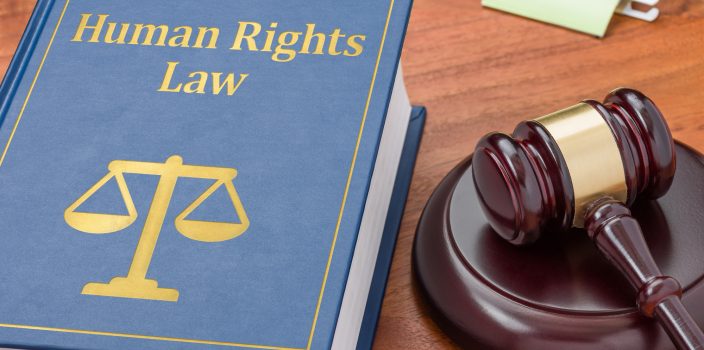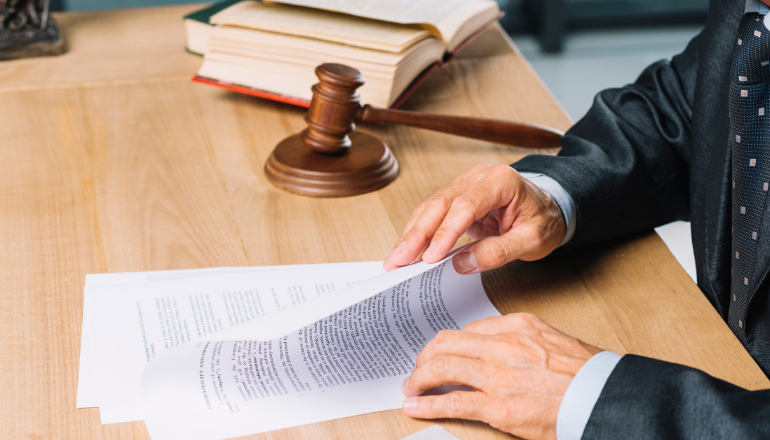What does a Human Rights Lawyer do?

Human rights lawyers work largely revolves around enforcing and protecting the rights set out by the Universal Declaration of Human Rights. Lawyers began to specialise in this area after the Human Rights Act 1998 came into force in 2000.
In this article we’ll examine the work of a human rights lawyer, as well as
What exactly is Human Rights Law?
In the simplest terms Human Rights Law protects our rights as human beings. Human rights are effectively the basic liberties people possess from birth to death, regardless of how they live their lives. As a result, Human Rights law covers both people who’ve never broken the law as well as criminals.
The purpose of human rights law is to ensure the law will treat all citizens equally. This includes legislation designed to ensure freedom of speech and protections against discrimination.
What do human rights lawyers do?
In the simplest terms a human rights lawyer is an attorney specialising in issues relating to human rights law. Often this includes matters like dignity, civil rights, equality, and freedom of speech.
Human rights is one of the broadest areas of the law and because of this the responsibilities of human rights lawyers vary a lot. Some of the tasks human rights lawyers end up taking on include,
- Advising clients and ensuring they have full knowledge of their rights
- Advocating on the behalf of the victims of human rights violations
- Making sure agreements are implemented properly
- Negotiating with the lawyers who represent other parties
- Taking with their clients and gathering up witness statements
- The research of previous cases
- Writing up legal documents for cases
What areas are covered by human rights?
Human rights lawyers sometimes specialise in specific types of human rights. This includes,
- Domestic Abuse
- Immigration rights
- International human rights
- LGBTQ issues
- Living conditions
- Prisoners’ rights
- Racial discrimination
- Refugee rights
- Worker’s rights
This is only a small selection of the areas which human rights lawyers work in.
What qualifications do you need to become a human rights lawyer?
There are no specific qualifications for becoming a human rights lawyer; this work is part of the broader legal system, so to work in human rights as a lawyer you will need to first become a lawyer.
You will need to either be a solicitor or barrister and then go on to take up cases regarding human rights.
This means there’s a variety of options in terms of qualifications and degrees you can take to qualify. The standard approach tends to be a law degree (or alternate degree) followed by the Graduate Diploma in Law.
After this you will be able to take the Legal practice course which is followed by a two-year training contract. During the completion of this you’ll be able to undergo the Professional Skills Course which will enable you to join the Solicitors Regulator Authority’s roll of solicitors.
There are other potential pathways to becoming a lawyer, but this is the most typical approach there is.
What skills are needed to become a human rights lawyer
Work as a human rights lawyer requires a lot of skill. Some of the abilities expected of a human rights lawyer include the following.
- Academic skills: The qualifications required to become a lawyer are academically demanding and you will need excellent grades to get onto a law course. Furthermore, you will be dealing with a huge number of documents and material in your duties and will need to be able to research and write these accurately.
- Working under pressure: Work as a lawyer can involve a huge amount of pressure and you’ll often have to work very long hours.
- Research abilities: You are going to have to examine previous cases and materials on a regular basis.
- Debate and negotiation skills: As a lawyer the last thing you will want is for a case to go to court; you will be aiming to negotiate a settlement. In the case you do end up dealing with matters in the court, you’ll want to be able to properly argue your points.
- Problem-solving skills: You will require excellent analytical skills to solve and understand legal problems facing your client.
- Written Communication skills: You will need to be clearly communicate when it comes to legal documents and other materials.
Salary for Human Rights Lawyers
The typical salary for human rights lawyers varies depending on whether you are working for a firm or working for another organisation. There’s other important factors like whether you are based in the UK and the level of work you are doing.
Typically, solicitors earn around £25,000 when they first qualify. Overtime this is likely to increase. Some of the highest wages per annum for human rights lawyers are well over £100,000.
Career Prospects for Human Rights Lawyers
Human rights legal experts have a significant range of options for career prospects. Human rights lawyers can work anywhere in the world as part of a huge number of different organisations, including NGOs, private firms, and even governments.
As a human rights lawyer you can choose to specialise and there are a variety of areas you can enter.
